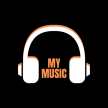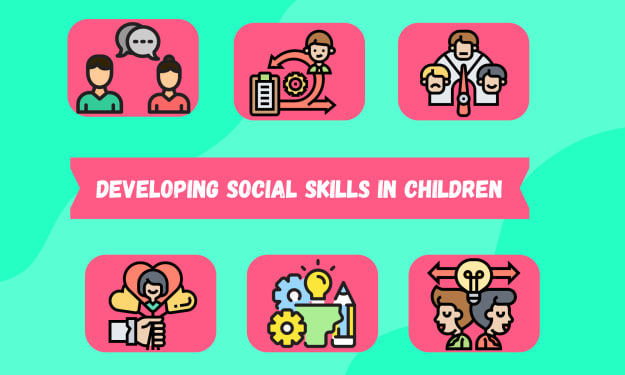Charting Your Path: How to Become a Paid Songwriter in 2024
Songwriting is more than just a creative outlet; it can be a fulfilling career with lucrative opportunities.

Songwriting is more than just a creative outlet; it can be a fulfilling career with lucrative opportunities. As we step into 2024, the music industry continues to evolve, presenting new avenues for songwriters to earn a living. This guide will help you navigate the path to becoming a paid songwriter, from developing your songwriting skills to understanding the business aspects and leveraging the latest technology. With determination and the right strategies, you can turn your passion for songwriting into a profitable and rewarding career.
Honing Your Songwriting Skills
To stand out in the competitive world of songwriting, you must continuously improve your skills.
Daily Writing Routine: Dedicate time each day writing. Consistency is key to honing your craft. Treat your songwriting like any other job, with regular hours and a disciplined approach. Write every day, even if it’s just a few lines or a new melody. This practice helps to keep your creative juices flowing and improves your songwriting abilities over time.
Study Successful Songs: Analyze the structure, lyrics, and melodies of hit songs to understand what makes them resonate with audiences. Pay attention to the song’s arrangement, chord progressions, lyrical themes, and how the melody complements the lyrics. Learning from successful songs can provide valuable insights into what works in different genres and styles.
Feedback and Improvement: Join songwriting communities or online forums to share your work and receive constructive feedback. Platforms like SoundCloud, Reddit, and dedicated songwriting forums are great places to connect with other songwriters and listeners who can provide valuable critiques. Use the feedback to refine your songs and improve your skills.
Learn Music Theory: A solid understanding of music theory can greatly enhance your songwriting. Knowing the rules can help you understand why certain songs work and how you can use these principles to create your own music. Study chord progressions, scales, and key signatures to create more sophisticated and compelling music.
Experiment with Different Genres: Don’t limit yourself to one style of music. Experimenting with different genres can broaden your skills and make you a more versatile songwriter. Try writing in genres you’re not familiar with to expand your musical horizons and discover new approaches to songwriting.
Creating a Compelling Portfolio
Your portfolio is your showcase. It should reflect your best work and demonstrate your range as a songwriter.
Professional Demos: Invest in quality recording equipment or studio time to produce high-quality demos. The quality of your recordings can make a significant difference in how your songs are perceived by potential clients and collaborators. A polished demo can help you stand out and showcase your songwriting abilities effectively.
Diverse Collection: Include songs from various genres to show your versatility. Showcasing a range of styles will make you more appealing to a broader audience and increase your chances of landing various opportunities. Ensure that your portfolio reflects your ability to write in different styles and genres.
Highlight Your Best Work: Focus on your strongest songs. It’s better to have a few outstanding tracks than a large collection of mediocre ones. Quality over quantity is essential when presenting your portfolio. Curate your portfolio to highlight your best work and demonstrate your skills effectively.
Networking and Building Relationships
Networking is a crucial part of the music industry. Building relationships can open doors to new opportunities.
Attend Industry Events: Participate in music conferences, workshops, and local gigs to meet industry professionals. Networking can lead to collaborations, mentorship, and new opportunities. Attend events regularly to stay connected with the industry and build your network.
Online Networking: Use platforms like LinkedIn, Instagram, and Twitter to connect with other musicians, producers, and industry insiders. Share your work regularly and engage with your audience to build a following and attract attention from potential collaborators.
Collaborate with Others: Working with other songwriters, musicians, and producers can lead to new opportunities and insights. Collaboration allows you to learn from others, blend different styles, and create unique music that stands out.
Join Professional Organizations: Becoming a member of organizations like ASCAP, BMI, or the Songwriters Guild of America can provide networking opportunities, resources, and support for your career.
Understanding the Business Side
To earn from your songwriting, you need to understand the business aspects of the music industry.
Types of Publishing Deals: Familiarize yourself with full publishing, co-publishing, and administration deals. Understanding these agreements will help you make informed decisions about your career.
Royalties: Learn about performance, mechanical, and synchronization royalties. Knowing how to earn and collect royalties is crucial for maximizing your income as a songwriter. Understand how royalties are calculated and distributed.
Contracts: Understand the basics of music contracts to protect your rights and earnings. Seek legal advice if necessary to ensure you’re entering fair and beneficial agreements. Make sure you know the terms and conditions of any contract you sign.
Copyright Your Work: Make sure to copyright your songs to protect your intellectual property. This legal protection ensures that you have control over your music and can take action if someone uses it without permission.
Finding Opportunities
Several avenues can help you get your songs noticed and earn money.
Songwriting Competitions: Enter competitions to gain exposure and credibility. Winning or placing in a competition can boost your profile and open doors to new opportunities.
Pitch Your Songs: Submit your songs to music libraries, publishers, and directly to artists and producers. Research the best avenues for your style of music and tailor your submissions to fit their needs.
Freelance Platforms: Use websites like Fiverr, Upwork, and SoundBetter to find paid songwriting gigs. These platforms can connect you with clients looking for custom songs, jingles, and other music-related projects.
Sync Licensing: Get your songs placed in TV shows, movies, commercials, and video games. Sync licensing can be a lucrative income stream and provide significant exposure for your music.
Music Supervisors: Connect with music supervisors who are responsible for selecting music for various media projects. Building relationships with these professionals can lead to opportunities for your songs to be featured in film, television, and advertising.
Leveraging Technology
Technology is a powerful tool for songwriters in 2024.
Digital Distribution: Platforms like TuneCore, Ditto Music, and RouteNote can help you distribute your music globally. These services allow you to reach a wide audience without needing a record label.
Social Media: Use social media to promote your music, engage with fans, and connect with industry professionals. Regularly post updates, behind-the-scenes content, and new music to keep your audience engaged.
Streaming Services: Get your songs on platforms like Spotify, Apple Music, and others to reach a wider audience. Optimize your profiles on these platforms to increase discoverability and attract more listeners.
Music Production Software: Invest in music production software like Logic Pro, Ableton Live, or FL Studio. These tools can help you create professional-sounding demos and fully produced tracks.
Crowdfunding: Use platforms like Patreon or Kickstarter to fund your music projects. Crowdfunding allows your fans to support your work directly and can provide a steady income stream.
Marketing Your Music
Effective marketing is crucial for getting your music heard and attracting paying opportunities.
Create a Brand: Develop a cohesive brand that reflects your style and personality. Consistent branding across your social media, website, and promotional materials will help you stand out.
Content Creation: Produce engaging content such as music videos, lyric videos, and behind-the-scenes footage. High-quality content can increase your visibility and attract new fans.
Email Marketing: Build an email list to keep your fans updated on new releases, shows, and other news. Email marketing is a powerful tool for maintaining a direct connection with your audience.
Press Releases: Write press releases for significant achievements and new releases. Send them to music blogs, magazines, and websites to gain media coverage.
Collaborate with Influencers: Partner with influencers and bloggers who can help promote your music to their followers. This can increase your reach and introduce your music to new audiences.
Monetizing Your Skills
Explore various revenue streams to maximize your earnings as a songwriter.
Music Licensing: License your songs for use in TV shows, movies, commercials, and video games. Music licensing can provide significant income and exposure for your work.
Teaching: Offer songwriting lessons or workshops to aspiring songwriters. Sharing your knowledge and experience can be a rewarding way to earn additional income.
Merchandise: Sell branded merchandise such as T-shirts, hats, and posters. Merchandise sales can supplement your income and help promote your brand.
Sync Licensing: Explore opportunities to have your music synchronized in media. This can be a lucrative avenue, especially if your songs are used in high-profile projects.
Session Work: Offer your skills as a session musician or songwriter for hire. Many artists and producers need talented songwriters to help complete their projects.
Building an Online Presence
An online presence is essential for reaching a global audience and attracting potential clients and collaborators.
Personal Website: Create a professional website to showcase your portfolio, share news, and provide contact information. A well-designed website can serve as a central hub for your online presence.
Blogging: Start a blog to share insights, tips, and experiences related to songwriting. Blogging can help you establish yourself as an expert in your field and attract more visitors to your website.
YouTube Channel: Launch a YouTube channel to share your music, behind-the-scenes content, and tutorials. Video content is highly engaging and can help you connect with a broader audience.
Social Media Strategies: Develop a social media strategy to consistently engage with your followers. Use platforms like Instagram Stories, TikTok, and Twitter to share updates and interact with your audience in real-time.
Building a Fanbase
A loyal fanbase can provide consistent support and opportunities for your career.
Engage with Your Audience: Interact with your fans on social media, respond to comments, and show appreciation for their support. Building a strong relationship with your audience can lead to a dedicated fanbase that supports your work.
Live Performances: Perform live at local venues, open mics, and online streams. Live performances can help you connect with your audience, showcase your talent, and gain new fans.
Fan Clubs and Communities: Create fan clubs or online communities where your fans can connect with each other and stay updated on your latest news. Engaging with your fans through these communities can foster a sense of loyalty and support.
Leveraging Analytics
Understanding analytics can help you make informed decisions about your music career.
Track Your Progress: Use analytics tools to track the performance of your songs on streaming platforms and social media. Analyzing this data can provide insights into what’s working and where you can improve.
Adjust Your Strategy: Use the insights from your analytics to adjust your marketing and promotional strategies. Focus on what’s working and make changes to areas that need improvement.
Understand Your Audience: Use analytics to understand your audience better. Knowing who your fans are and what they like can help you create content that resonates with them and build a stronger connection.
Conclusion
Becoming a paid songwriter in 2024 is a journey that combines creativity, business knowledge, and strategic networking. By honing your songwriting skills, building a compelling portfolio, networking effectively, understanding the business, finding opportunities, and leveraging technology, you can transform your passion for songwriting into a profitable career. Persistence and dedication are essential, so keep honing your skills and exploring new opportunities. The journey to becoming a paid songwriter may be challenging, but with determination and hard work, you can achieve your dreams and enjoy a rewarding career in music.
About the Creator
Enjoyed the story? Support the Creator.
Subscribe for free to receive all their stories in your feed. You could also pledge your support or give them a one-off tip, letting them know you appreciate their work.






Comments
There are no comments for this story
Be the first to respond and start the conversation.